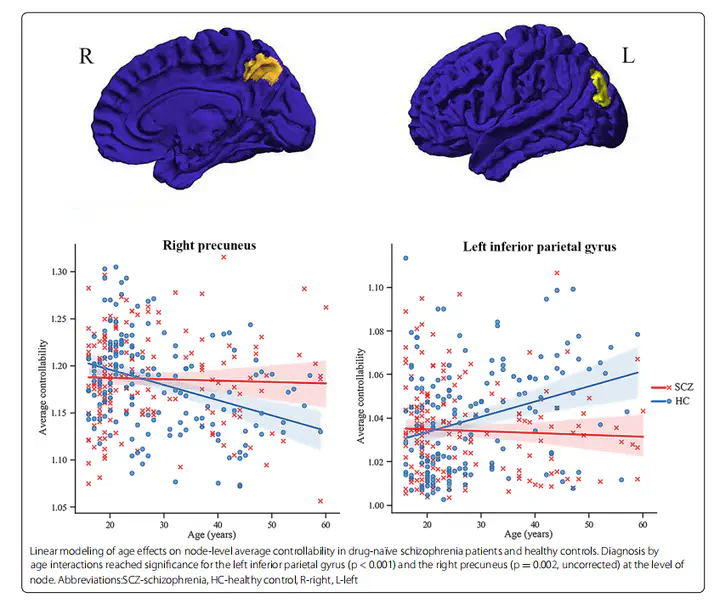Age-associated network controllability changes in first episode drug-naive schizophrenia

Abstract
Recent neuroimaging studies revealed dysregulated neurodevelopmental, or/and neurodegenerative trajectories of both structural and functional connections in schizophrenia. However, how the alterations in the brain’s structural connectivity lead to dynamic function changes in schizophrenia with age remains poorly understood.
Combining structural magnetic resonance imaging and a network control theory approach, the white matter network controllability metric (average controllability) was mapped from age 16 to 60 years in 175 drug-naïve schizophrenia patients and 155 matched healthy controls.
Compared with controls, the schizophrenia patients demonstrated the lack of age-related decrease on average controllability of default mode network (DMN), as well as the right precuneus (a hub region of DMN), suggesting abnormal maturational development process in schizophrenia. Interestingly, the schizophrenia patients demonstrated an accelerated age-related decline of average controllability in the subcortical network, supporting the neurodegenerative model. In addition, compared with controls, the lack of age-related increase on average controllability of the left inferior parietal gyrus in schizophrenia patients also suggested a different pathway of brain development.
By applying the control theory approach, the present study revealed age-related changes in the ability of white matter pathways to control functional activity states in s chizophrenia. The findings supported both the developmental and degenerative hypotheses of schizophrenia, and suggested a particularly high vulnerability of the DMN and subcortical network possibly reflecting an illness-related early marker for the disorder.